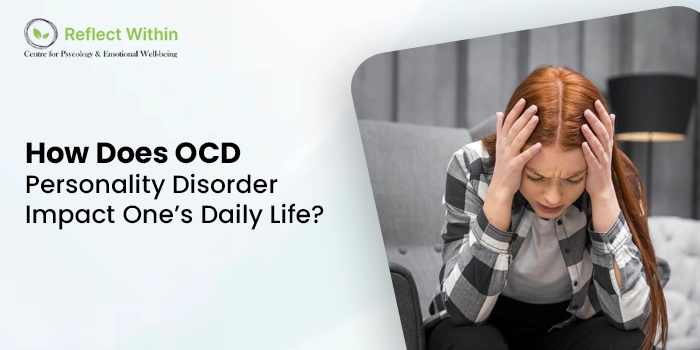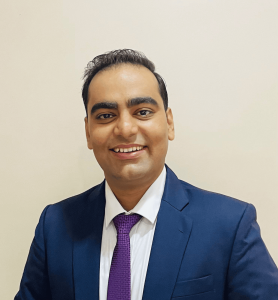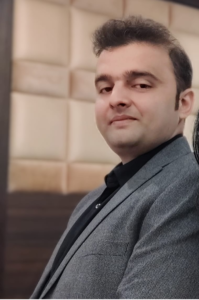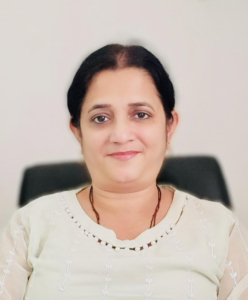Unwanted or unconscious thoughts and fears sometimes become obsessions, and the condition beyond this is known as OCD personality disorder. It’s a long-lasting personality disorder that makes a person uncontrollable from undergoing repetitive behaviors (compulsions) and continuous thoughts (obsessions). Also, a person may experience both of these with critical symptoms causing prominent distress and affecting one’s daily lifestyle. In this blog, we will discuss this mental health disorder in detail, learn how it occurs, and get a glimpse of the major signs that a person develops with OCD.
If you’re someone struggling with obsessive thoughts or repetitive behavior and need professional help, connect with Reflect Within and book a session with us.
What is OCD Personality Disorder All About?
As briefed above in the introduction, OCD personality disorder is about carrying repetitive behaviors called compulsions and unconscious recurring thoughts are known as obsessions. It’s a common but critical mental health condition that one may develop for a number of reasons, which we will discuss later in this blog.
People with obsessive compulsive syndrome experience certain challenges in their social and daily life. On average, this life-long (chronic) mental state can commence from the age of 19, and around 50% of people with OCD can start developing its severe signs during their childhood or teenager hood. Also, such people are well-familiar with the fact that their symptoms can be problematic for themselves and others as well. However, according to healthcare experts, these signs can come and go over a period.
Well, people with obsessive compulsive syndrome not really enjoy performing repetitive tasks, but they’re helpless as this condition is uncontrollable for them.
Signs to Watch For Compulsive and Obsessive Mental Disorders
The OCD personality disorder typically encompasses obsessions and compulsions, leading to a distressed lifestyle for a person. Below, we have specifically mentioned the signs to watch for both compulsive and obsessive mental health disorders. Take a look:
Signs of Compulsive Syndrome
- Keep on counting any specific set or a number of things.
- Double-checking again and again.
- Frequent washing and cleaning hands or anything around.
- Stay with a strict and same routine without compromising on anything related to it.
- Keep on demanding reassurance or ordering.
- Unconscious and uncontrollable intrusive thoughts.
- Repeating any particular phrase, prayer, or any word and that too silently.
- Thinking negatively or having bad thoughts instead of good thoughts.
- Organizing everything in a particular and symmetric pattern or needing everything in the same sequence.
Symptoms Related to Obsessive Mental Disorders
- Aggressive thinking pattern related to losing control of hurting oneself or maybe others.
- Needing things to be done within a specific period or in an organized manner.
- Can’t deal with situations of uncertainty or doubting oneself.
- Unconscious and uncontrollable thoughts related to sexual, aggression, or religious aspects.
- Carrying a fear of untidiness, dirt, contamination, or unhygienic.
- No control over or getting obsessive thoughts related to unpleasant sexual images in the mind in the middle of any task.
- Disliking being touched by anyone or any object due to the fear of dirt or contamination.
- When in public, getting thoughts of shouting or acting in a wrong way.
- Not shaking hands with others due to situations leading to obsessions.
- Getting intensely stressed when the objects are disorganized or the room is messy.
- Self-doubt while performing or completing any task is also a sign of obsessive mental disorder.
- Keep on following a specific shape while performing any task.
- Obsession of perfection, symmetry, order, and neatness.
If you recognize any of the above OCD signs and are searching for professional OCD treatment near me, contact Reflect Within at +91 8928467288 to book a session with professional therapists.
Reasons for Developing Obsessive Thoughts and Compulsive Behaviour
Perhaps the causes of OCD are still not fully understandable. However, the following common factors may possibly contribute to developobsessive thoughts & compulsive behavior:
- Sometimes, the genetic and hereditary aspects can also bring OCD symptoms to the one of the family members. As per the studies, if any parent or sibling carries the signs of OCD, possibly the next family member has a higher chance of developing the disorder.
- Another possible factor that could bring signs of OCD to a person is the traumatized childhood. Many medical research and studies have stated a notable link between childhood trauma or tragedy and obsessive-compulsive syndrome.
- Apparently, functional abnormalities or issues with the chemical structure inside the brain can develop severe conditions of OCD in a person.
- Children with temperamental issues, low inhibitory control, and negative thought patterns are more likely to experience OCD-related problems while growing.
What are the Available OCD Treatment Options?
A professional help with proper diagnoses and treatment can effectively help people, even those with the most critical OCD symptoms. According to medical professionals, psychotherapy is an effective available OCD treatment. Let’s see how it helps:
Psychotherapy, also known as effective talk therapy, can be extremely helpful for both children and adults with OCD disorder. This therapy treatment includes cognitive behavioral therapy, acceptance, and commitment therapy, exposure and response prevention, etc.
Certainly, this OCD treatment therapy strives to help people recognize and improve their uncontrollable emotions, obsessive thoughts, and compulsive behaviors. However, medical professionals state that there is no particular OCD cure, and therapy treatment plans can be helpful for only addressing and improving the symptoms affecting one’s daily life.
Now, let’s briefly discuss the different therapy techniques of psychotherapy:
Cognitive Behavioural Therapy (CBT)
One of the common psychological therapy treatments for people with OCD is cognitive behavioral therapy. It has been medically researched that CBT can address multiple types of mental health disorder, and one of them is OCD disorder. Here, the therapist will help people identify and understand their unconscious thoughts and emotions, leading to intrusive thoughts or obsessions. This therapy is helpful in replacing negative thoughts with positive ones to help one cope with OCD.
Acceptance and Commitment Therapy (ACT)
The next technique that a certified psychologist encompasses is related to the Acceptance and Commitment therapy. This psychotherapy mainly focuses on helping people accept their struggle with negative thinking patterns, emotions, feelings, and signs of OCD personality disorder. This acceptance further encourages the OCD person to commit to a healthy and constructive lifestyle, minimizing uncontrollable thoughts and behaviors.
Exposure and Response Prevention (ERP)
Coming to the next form of psychotherapy, which is Exposure and Response Prevention, is effective in helping people overcome feared situations or images leading to the urge to perform a certain compulsion. The therapist helps people to get exposed to their compulsions of fearful situations. All this happens in a safe environment under the supervision of the therapist, preventing one from engaging again with their typical compulsive behavior.
What are the Significant Outcomes of OCD Disorder Personality?
Once a person develops the severe signs of OCD, their daily life is significantly impacted. Let’s see how:
- Obsessive thoughts or compulsions may waste a number of hours of an individual’s day.
- This mental health disorder also has a negative impact on one’s education and employment.
- People might start avoiding a person with more severe signs of OCD.
A Note from Reflect Within!
Always remember that OCD personality disorder is a severe mental health issue, but with the right guidance and professional help, one can overcome this. People having such mental health issues must seek help as soon as they recognize symptoms. If you’re looking for professional help or a therapist, ring +91 8928467288 and book a session with Reflect Within.


















